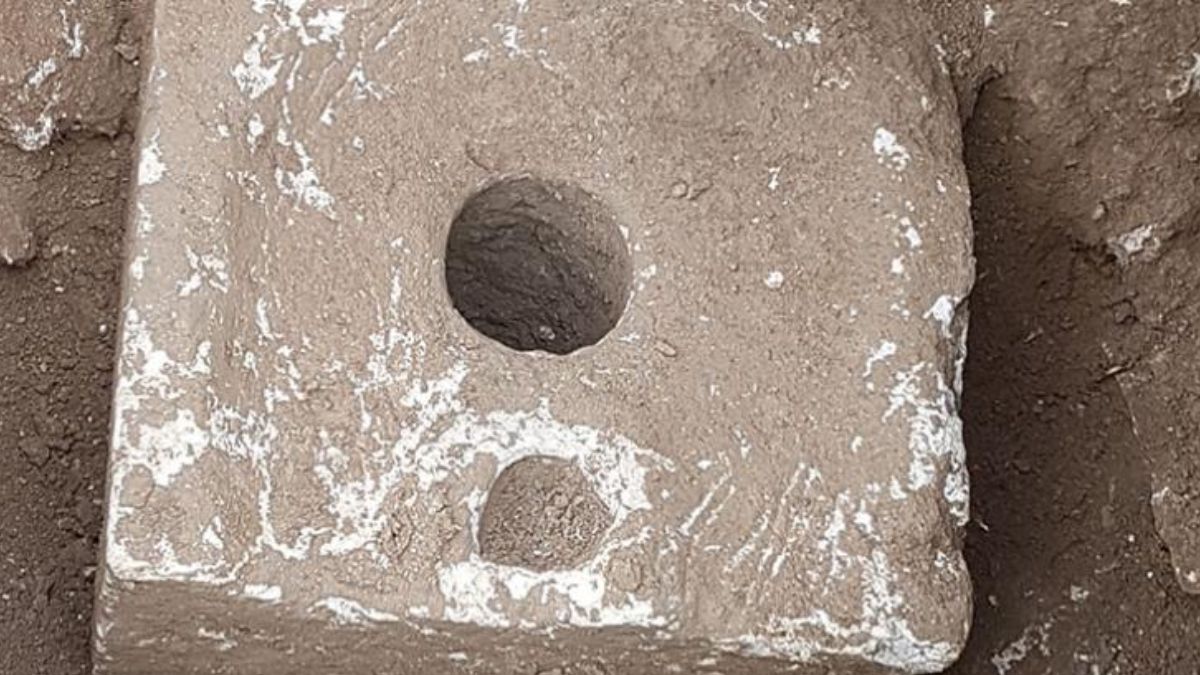We all know the importance of having a toilet, which was not considered very important ages ago. There have even been movies like Toilet Ek Prem Katha to explain its importance. Well, it looks like the people in ancient Jerusalem were much ahead of their times. An excavation has led to the discovery of a 2500-year-old limestone slab with a hole similar to today’s toilet and traces of faeces.
2500-Year-Old Toilet Found In Jerusalem
In the southern part of Jerusalem, a 2,500-year-old limestone slab with a hole in it that resembles a modern toilet was discovered after an excavation. There are rumours that the richest family at the time formerly owned this toilet.
Additionally, traces of faeces were discovered inside the toilet. When faeces were examined by scientists, they discovered that the single-celled bacterium Giardia duodenalis, which is known to cause diarrhoea, was present in small amounts.
A digestive disorder called dysentery can cause diarrhoea, fever, nausea, vomiting, weight loss, and stomach cramps. The journal Parasitology released a study on latrines that were first used in the historical kingdom of Judah. According to the University of Cambridge, it offered the earliest known proof of this parasite infecting people anywhere on the planet.
2,500-year-old faeces from biblical Jerusalem has been found to contain traces of parasites that cause diarrhoea.
The study from @UCamArchaeology suggest dysentery was rife in the ancient Kingdom of Judah 👇https://t.co/EIz5K6hZ81
— Cambridge University (@Cambridge_Uni) May 26, 2023
Also Read: Japanese Ambassador Hiroshi Suzuki Attends Aarti, Relishes Banarasi Thali And Golgappa In Varanasi
A Separate Hole For Male Urination
Because it was discovered next to the Armon Ha-Natziv house in Jerusalem, experts estimate that this specific toilet seat dates to King Manasseh’s reign. The reign lasted for five decades in the middle of the seventh century BC.
This prehistoric toilet was made of limestone and had a roomy entrance for excrement, along with what was probably a separate hole for male urination.
The investigation revealed that towns were not planned back then, and hence the invention of flushing toilets was yet to happen. The population back then had zero understanding of microorganisms, their existence, or how they could spread.
Another toilet seat similar to this design was excavated at a place known as the House of Ahiel. Rich people from that era occupied that building. (As per The Indian Express and News 18)
Also Read: Mumbai Police Bans Public Gatherings Till June 11. Check Out What’s Allowed And What’s Not!
What are your views on this?
Cover Image Courtesy: @cambridgeuniversity/Twitter
First Published: May 29, 2023 5:33 PM



